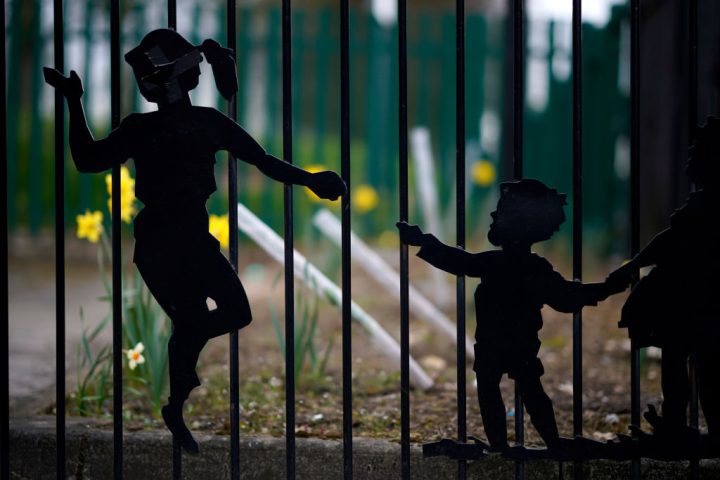The Education Act of 1880 made it compulsory for all children in the UK to attend school between the ages of 5 and 10. The 1918 Education Act saw that rise to 14; in 1944 it went to 15. In 1972, the age crept up to 16, and finally in a gasp of heroic ambition, 2013 saw it hit 18 for full time education. Children, history insisted, had to be in school, for their own good, and for the good of society. And largely, society agreed with that.
That is, until March 2020, when every school, nursery and college sent them all home again. Suddenly not only did children not have to be in school, but they also weren’t allowed to be. A model that had been unquestionable, indubitable, was suddenly shaken like a snow globe. ‘Is schooling mandatory or not?’ people asked it. ‘Ask again later,’ replied the ball.
For many children, this new normal meant a world where school did not figure very largely
Suddenly everything we thought was axiomatic about education was flipped on its head. Universal face-to-face learning turned into a hundred variants of the blended classroom, delivered at home, remotely. Universal inclusion became almost universal exclusion, without any kind of fixed term.
Everyone, including local authorities, schools, and ministries, felt wrong-footed. Credit is due to school leaders, civil servants, and teachers everywhere: they coped, managed and often thrived. Teachers are frequently the masters of improvisation, and lockdown forced them to dig deeper to adapt to this new and empty world. Exams: cancelled. Curriculums: compressed, rewritten, and rearranged. It was sudden, constant revolution with no goal beyond coping.
June 2020 started to see an expansion of schooling once more, but that was clobbered by the following winter, and schools remained in stasis until March 2021. First primaries then secondaries expanded their cohorts again more fully. But this new normal could never be the old normal, because once the normal plan has been shredded, it seems impossible to forget that what once seemed incontrovertible – that children should always be in school – had in a crisis been proven to no longer be self-evident.
For many, that toothpaste has not easily gone back into the tube. Recent research by Public First reports that absence in schools has gone up by 50 per cent while persistent nonattendance has doubled.
This is a huge concern. You don’t need research to tell you – although it does if you want to ask it – that children do much better when they remain in school, and that it becomes much harder to learn things if you are not present to do so.
Nobody should be surprised. We spent the best part of a year telling parents that they mustn’t send children into school, they can’t. The argument was made that children, even if not affected in the same way as more vulnerable groups, would be vectors of Covid transmission, and that for public good they had to remain as isolated as everyone else.
But if you tell people ‘remember how we used to be all in your faces if your kids missed a day because you took them to TGI Fridays for their birthday? Remember how we told you that every day counted? Well, forget all that. Make sure you log into Google classroom at 9 a.m.’ then when the storm wanes, don’t be surprised if they think, ‘What are my options?’
None of this is an argument against lockdowns in general. None of this isn’t to say that it may have been a worthwhile strategy to pursue. But it was never going to be a risk-free tactic.
One of the things we are most certain about human behaviour is that it is largely based on habit, on what we are used to. The Covid years were not a break from the norm; they were the creation of a new norm. Children developed new habits. For the lucky, it meant more parental contact, support with learning, and castles made from cardboard, banana bread and Tiger King. For the unlucky, it was twelve to eighteen months in their bedrooms, learning how to lie still and play on the Nintendo Switch with strangers. Or worse.
For many, this new normal meant a world where school did not figure very largely. It diminished and dwindled like a ship passing over the horizon. People, as Proust said, could get used to anything. Sometimes that means learning to cope with insurmountable odds, sometimes that means decaying into bad habits like sloth, lethargy, and the numb solitary stillness of solipsism.
Suddenly, for many, the assumption that every day at school was priceless seemed more flexible. Economic uncertainty has combined with this new licentiousness to suggest that term-time holidays are justifiable or even moral. And whatever the merit of teacher strikes, they have become a third factor in this aspect: if even teachers can shut a school down, however legitimately, then it seems obvious that for parents, attendance is more optional than it used to be, especially when it means the difference between Disneyland and Dagenham.
Lockdowns were never going to be risk-free. Nothing would be. And they were probably the best decision made in an uncertain time. But no one should be surprised that when you sow a wind, you harvest a hurricane. Like everything else associated with Covid, we will feel that storm for years to come. It will take a different kind of wind to blow kids back to school.






Comments